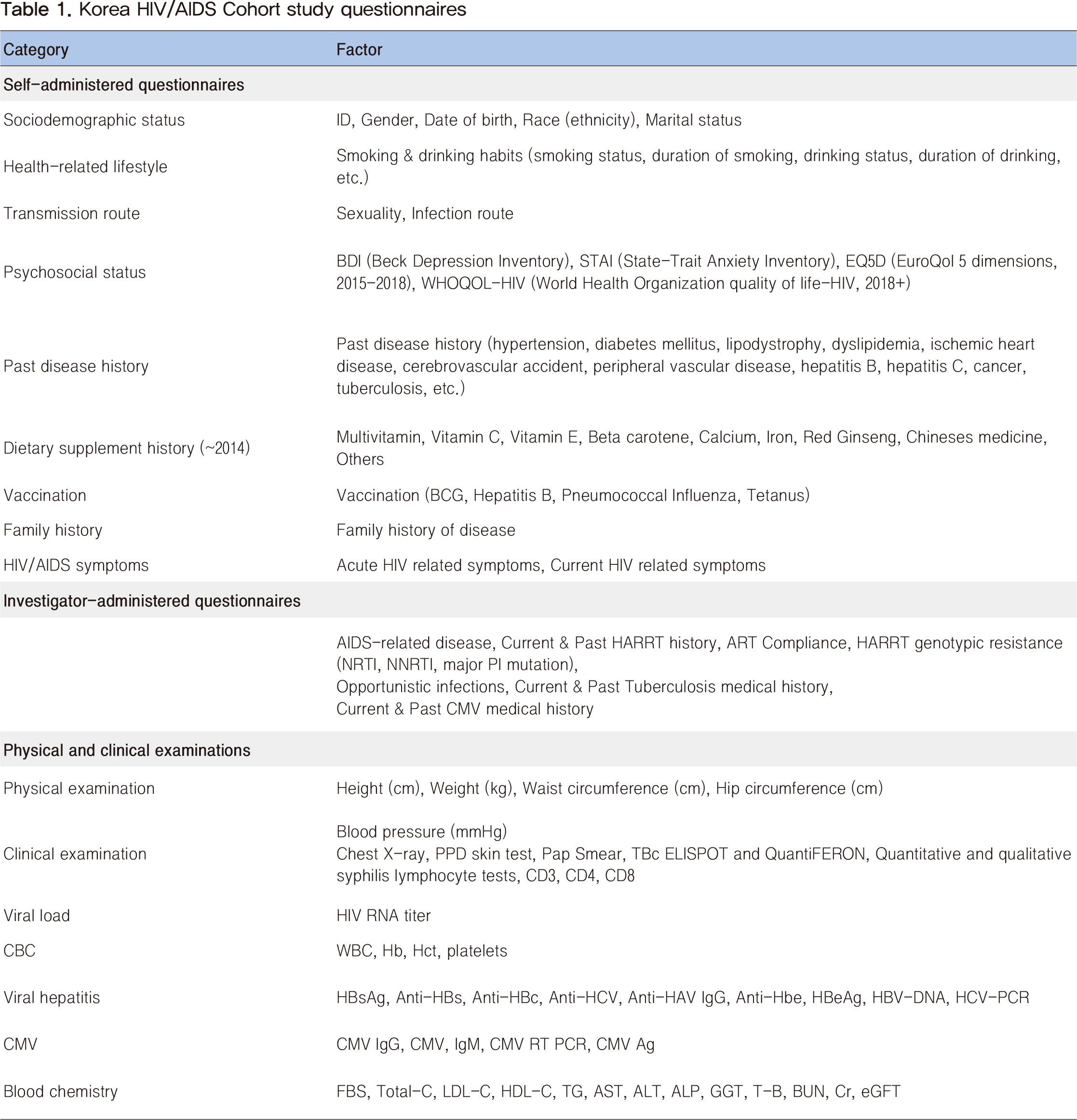contents area
Public Health Weekly Report
detail content area
- Date2019-11-28 22:10
- Update
- DivisionDivision of Viral Disease Research
Korea HIV/AIDS Cohort Study
Yoo Myeong-su, Kee Mee-kyung, Kim Kisoon
Division of Viral Disease Research, Center for Infectious Diseases Research, KNIH, KCDC
This Korea HIV/AIDS cohort study investigated the risk factor progression from human immunodeficiency virus (HIV) infection to acquired immunodeficiency syndrome (AIDS) onset to death. The study aimed to provide scientific knowledge for strategy and policy development for disease management and to improve the quality of life and extend the life expectancy of HIV-infected personsin Korea 1,539 subjects, approximately 10% of the HIV/AIDS infected population in Korea, participated in the study. Furthermore, the study targeted 1,000 persons for yearly follow-ups excluding those who completed the follow-up stage; the number of subjects available for follow-up as of 2019 was 929. The October 2019 cohort was 93.3% male and 6.7% female (gender ratio, 13.9:1), and 98.9% were Korean nationals.
The following lists the approaches to operating the cohort that have been implemented over the past 10 years (2009-2019):
1) An operating system for establishing cohort-based research on HIV/AIDS
2) The standardization of research methods and research tools (Case Report Form; CRF)
3) The standardization and development of refinement methods of multi-institutional cohort data and resources: The collected data including plasma and PBMC were used as basic material to contribute active research on HIV/AIDS in Korea.
Keywords: Korea HIV/AIDS Cohort Study, Sexually transmitted disease cohort, Infectious disease cohort


